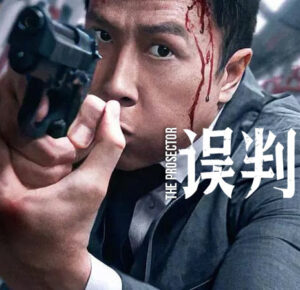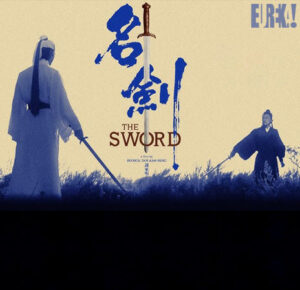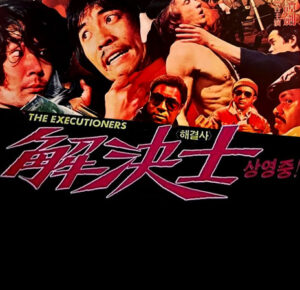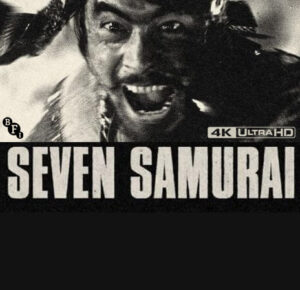AKA: Karate Cop
Director: Lo Wei
Cast: Don Wong Tao, Sylvia Chang Ai Chi, Chuck Norris, Chin Yuet Sang, Wong Sam, Yee Kwan, Lam Ching Ying, Daniel Ivan, Robert Jones, Ma Man-Chun
Running Time: 100 min.
By Jeff Bona
Despite of the fact that Lo Wei’s Yellow Faced Tiger was produced in 1974, the film’s origin dates back to 1972, when it was originally planned to be Bruce Lee’s 3rd project following Fist of Fury (1972). However, due to Lee’s much-publicized squabble with Wei, the two went separate ways and Yellow Faced Tiger was indefinitely shelved.
Some believe that Lee refused to work with Wei for a number of reasons. One may have been that Wei, who dubbed himself “Hong Kong’s First Millionair Director,” publicly took full credit for the success of both The Big Boss (1971) and Fist of Fury (1972). Wei even went as far as saying he was responsible for teaching Lee how to fight on camera, which obviously made Lee furious.
Another reason is the two rarely saw eye to eye. During shooting, Lee would often clash with Wei, criticizing him for spending more time in his trailer or off set, and less time overseeing the progress and quality of his productions. When instances like this occurred, it was Lee who took charge and became an informal co-director.
Then there are the rumors: George Tan, a noted Bruce Lee Historian, has said the following about the Wei/Lee feud: “The REAL reason behind the feud was Raymond Chow (founder of Golden Harvest Studios). Chow is the master of divide and conquer. Chow was sleeping with Wei’s wife at the time. Imagine what would have happened if Wei found out at that critical point. What if he told Lee to split and form a new company away from Chow? Chow was/is a true master. Lee was a novice in that arena.”
Whatever the truth may be, anyone who has seen Wei’s non-Bruce Lee films can’t deny that Lee’s presence – both on screen and off – is what made the The Big Boss and Fist of Fury the classics that they’re known as today. The same scenario can be applied to Robert Clouse – just watch any movie he directed after Enter the Dragon (1973).
In 1974, a year after Lee’s passing shook the entire Hong Kong film industry, Chow finally decided to unshelve Yellow Faced Tiger. Determined to find someone to fill Lee’s shoes, Golden Harvest held a talent search in New York where they discovered Don Wong Tao, an avid Taekwondo practitioner who slightly resembled Lee. Impressed with both his looks and his physical ability, Golden Harvest immediately signed Wong Tao for a multi-picture deal.
Golden Harvest also brought back American Karate Champion, Chuck Norris, as the film’s ruthless villain. Norris, who was previously handpicked by Lee for Way of the Dragon (1972), was approached by Wei for the film’s main baddie. According to Norris’ 2004 autobiography, Against All Odds My Story: “When Lo Wei, a Chinese director, asked me to play a role in a low-budget karate movie called Yellow Faced Tiger that he was making in San Francisco, I said, “Sure, why not?” Lo Wei said the movie would be shown only in Asia. I didn’t care; I needed the money.”
Considering Yellow Faced Tiger was shot in San Francisco, California – with a cast consisting of many Caucasian and African American talent – many assume that the film was intended for Western audiences a la Enter the Dragon. Contrary to that belief, the film wouldn’t make its way into America until 1981 for one particular reason (more on that later).
In a nutshell, Yellow Faced Tiger revolves around a Chinese cop named officer Wong (Wong Tao) who’s having a really bad week. After Wong saves his buddy (Robert Jones) from being beaten to death by a gang, he gets kicked off the force for accidentally killing one of the thugs. Wong then takes a job at a Chinese restaurant where he comes across a crime syndicate boss (Norris) who wants to recruit him because of his fighting skills. When Wong refuses, the syndicate makes his life a living hell.
Like many post-Lee, early 70s Golden Harvest films, Yellow Faced Tiger is one dodgy production. It’s what you would expect from Wei: Shaky cameras (unintentionally, not artistically), rushed shots and horrendous acting. But make no mistake, its hilarious imperfections make it a riot to watch. Without doubt, it falls under the cliché “so bad, it’s good” category.
The film is definitely action-packed, courtesy of veteran fight choreographer Han Ying Chieh (better known as the guy who plays “The Boss” in The Big Boss). If you’re aware of the non-Lee fights Chieh staged for The Big Boss, then you should have a solid idea of what Yellow Faced Tiger has to offer. Let’s just say that the choreography was the typical early 70s, basher-type fights, which were bland, especially compared to the grace and fluidity that Lee had to offer.
Nonetheless, it’s apparent that Wong Tao was choreographed with Bruce Lee’s fighting-style in mind. Lee’s trademark clenched-fist pauses, intense facial features and one punch/kick knockdowns are all here; only problem is Wong Tao isn’t Lee, so the carbon copied movements come across as forced and out of place. Like Lee, Wong Tao is often shirtless and sports a similar hair style. That said, Yellow Faced Tiger should be classified as a Bruceploitation flick.
Unfortunately, after Yellow Faced Tiger failed to bring in box office numbers, Golden Harvest came to the conclusion that Wong Tao wasn’t a bankable star, so after two movies – the other, a partial role in Chinatown Capers (1974) – Wong Tao and Golden Harvest parted ways.
A couple years later, Wong Tao ultimately found glory when he hooked up with Seasonal Films’ Ng See Yuen to appear in a new film, opposite Hwang Jang Lee and John Liu. Instead of trying to make him another “new Bruce Lee,” Yuen was able to showcase Wong Tao in a different light. The result: The Secret Rivals (1976), which ended up being a major hit and has remained a cult classic to this very day.
Also of note in Yellow Faced Tiger is an early appearance of actress, Sylvia Chang (The Lady Killer). Despite her raunchy role (in one fully clothed scene, she gets off by pretending to be raped by two men), Chang went on to become one of the most successful Hong Hong stars, reaching critical acclaim for her acting, writing and directing skills. You have to start somewhere, right?
The bottom line: Yellow Faced Tiger is one of the worst films in the Golden Harvest catalog, but like The Man Called Tiger (1973) and Stoner (1974), it’s highly entertaining because of its flaws and interesting for its historical connection with Bruce Lee.
Footnote: In 1981, during the height of Norris’ Hollywood career, Yellow Faced Tiger was to be re-released as Slaughter in San Francisco to capitalize on his success. Upon hearing of the film being marketed as “a brand new movie starring Chuck Norris,” Norris took legal action and tried to stop it from being released. After all, he didn’t want to ruin is squeaky clean, Good Guys Wear Black (1978) image with a low budget, badly dubbed, Chinese production where he plays a sleazy villain. Clearly, Norris lost this battle.
Jeff Bona‘s Rating: 6/10




























12 Comments